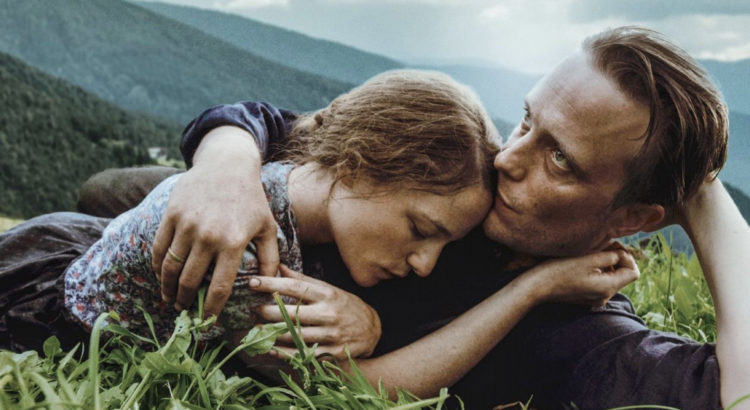If we are given a free will, what we are responsible for? Terrence Malick’s A Hidden Life is a meditative narrative that journeys through such a question. The beauty of Malick’s work lies in his consistent demonstration of deep meaning through intricate layering, stunning cinematography, and an eye for the simple and the remarkable.
The true story of Franz Jägerstätter is of an Austrian farmer who conscientiously objects to joining Hitler’s fascist regime in World War II, undergoing bitter persecution and ultimately execution for such a stance. Throughout these trials, his deep faith in God and pure love for his family continually prompt an examination of conscience that progressively solidifies his inner call to honor the sanctity of all human life.
While this story of Franz Jägerstätter is considered to be Malick’s most sequential film to date, A Hidden Life goes deeper with what I would call a non-sequential analogous portrait of Christ’s Passion from the New Testament. As the audience follows Franz through his suffering that leads to execution, we are introduced to several characters that serve as representational figures of Jesus’s Passion: a judge as an interrogative Pontius Pilate-type, a taunting soldier, and Franz’s lawyer who acts as the Last Temptation of Christ, reminiscent of the Martin Scorsese film of the same title. Franz demonstrates that if we are given a free will and are capable of choosing the good, all actions, even controversial and solitary ones, have meaning. By refusing to swear any sort of public loyalty to Hitler, he sacrifices his life and the joys of home yet to come.
It is from this, however, that this film explores the dueling natures of freedom and captivity through juxtaposing sequences of Franz’s captivity with shots of his once-sublime home life. Malick captures leisure, family life, and earnest work to be simple and good, all in a truly atmospheric fashion that serves to encapsulate true freedom to live and love well. Having fought the good fight, Franz is executed. A final, long shot of him riding his beloved motorcycle home serves to represent the eternal resting place to which he journeys on. This film possessed an organic perfection that I have not encountered in a very long time. Suspended at the closing shot of our film, and still hanging in my mind, are George Eliot’s thoughtful remarks from Middlemarch:




